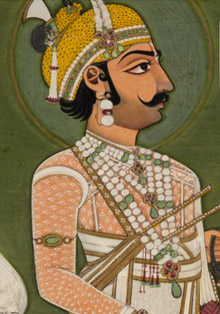Nacho Sánchez Amor
Member of the European Parliament
In general, in the foreign affairs committees of parliaments, dragged along by frenetic international news, one jumps from crisis to crisis, leaving little room for reflection on the instruments, the means and the levers of foreign policy. This is also the case in the European Parliament, but with an essential difference: the member countries have long diplomatic experience, sometimes for centuries, and their instruments are well tried and tested. This is not the case in the European Union, whose common foreign policy is the recent result of a struggle between the emerging capabilities of Brussels and the (logical) reluctance of governments to relinquish a function so central to their sovereignty. The current Common Foreign and Security Policy of the EU is the heir of a previous informal concertation of governments, which was consecrated in 1992 in Maastricht and matured in 2009 in Lisbon.
One of the most notorious elements of this maturity is the creation of the European External Action Service (EEAS), the first European diplomatic instrument, and therefore the essential tool of these new capabilities. The governments decided to create this instrument between the Commission and the Council and to keep its head, today Josep Borrell, with the “double hat” of High Representative of the national executives and Vice-President of the Community executive. It is now almost thirteen years of practice and the Parliament decided that it was time to review its operation through a Recommendation that was adopted in the Strasbourg Chamber last week. It has fallen to me to represent the S&D Group in this negotiation as “shadow rapporteur”.
One issue that has become unnecessarily complicated in practice stems from the unclear legal regulation of the respective external functions of the President of the Council, the President of the Commission and High Representative Borrell. But not only from the regulation, but also from a certain external hyperactivity of the first two, which has resulted in duplicities, protocol frictions and a certain impression of competition to appear on the international scene or with the most relevant interlocutors. Many faces and many egos in EU foreign policy. A situation for which my prescription is “let Borrell work, he does not seem very concerned about the height of his chair in the photos”. Creating a common diplomatic culture is also part of the solution, pending greater clarity in the Treaties.
Overall, the text of the Recommendation reflects a growing satisfaction with the External Service and calls for reinforcing its current capabilities to meet the many expectations, something perfectly in line with the expressed desire to have a “geopolitical Commission” and to make the EU a true “global actor” endowed with “strategic autonomy”. The Parliament, in its tendentially more federalist logic than that of the other institutions, rightly points out that one of the essential problems of the European foreign policy decision-making process is the need for unanimity, which offers absolute veto power to each of the governments and, consequently, the temptation to use that veto to strengthen national positions at other EU negotiating tables. The Parliament, not for the first time, calls for the introduction of qualified majority logic in several areas (human rights, protection of international law and sanctions), while vetoing others (military missions).
A matter on which it insists is to empower the High Representative to coordinate the foreign dimension of other European policies and to have pre-eminence in case of differences within the College of Commissioners, in addition to a more established role of coordinating the foreign policy positions of the 27, with express citation of those taken in the UN Security Council (it has not dared to ask for something that will enter the agenda sooner rather than later, the EU seat in that Council).
For my part, I have managed to include in the text some ideas that have a Spanish matrix in the Parliament. An EU seat in the UN Security Council; the continuity of the recommendations following the electoral observation missions; a new conception of our European cultural diplomacy (beyond the disorderly juxtaposition of the great national instruments similar to Cervantes); the common training and consolidation of a genuinely European diplomatic culture through the nascent European Diplomatic School; the flow of intelligence from the national services to the EEAS in external crises; the shared responsibility of the EU Delegations and the national embassies in the field of Human Rights; the incorporation of the Delegations to the functions of the EU Delegations in the field of Human Rights; the incorporation of the Delegations to the functions of the EU Delegations in the field of Human Rights; the shared responsibility of EU Delegations and national embassies in the field of human rights; incorporating the Delegations in the functions of election observation and follow-up of recommendations in the periods between missions; avoiding over-representation in diplomatic functions of some member states in geographical areas with which there is a historical, linguistic or cultural connection; and promoting greater gender equality in the EEAS in general and in the higher level positions of the EU Delegations.
In short, a timely contribution of the European Parliament to the maturation of the instruments of a European foreign policy, put to the test as never before with a war at the gates of the Union.
© All rights reserved






